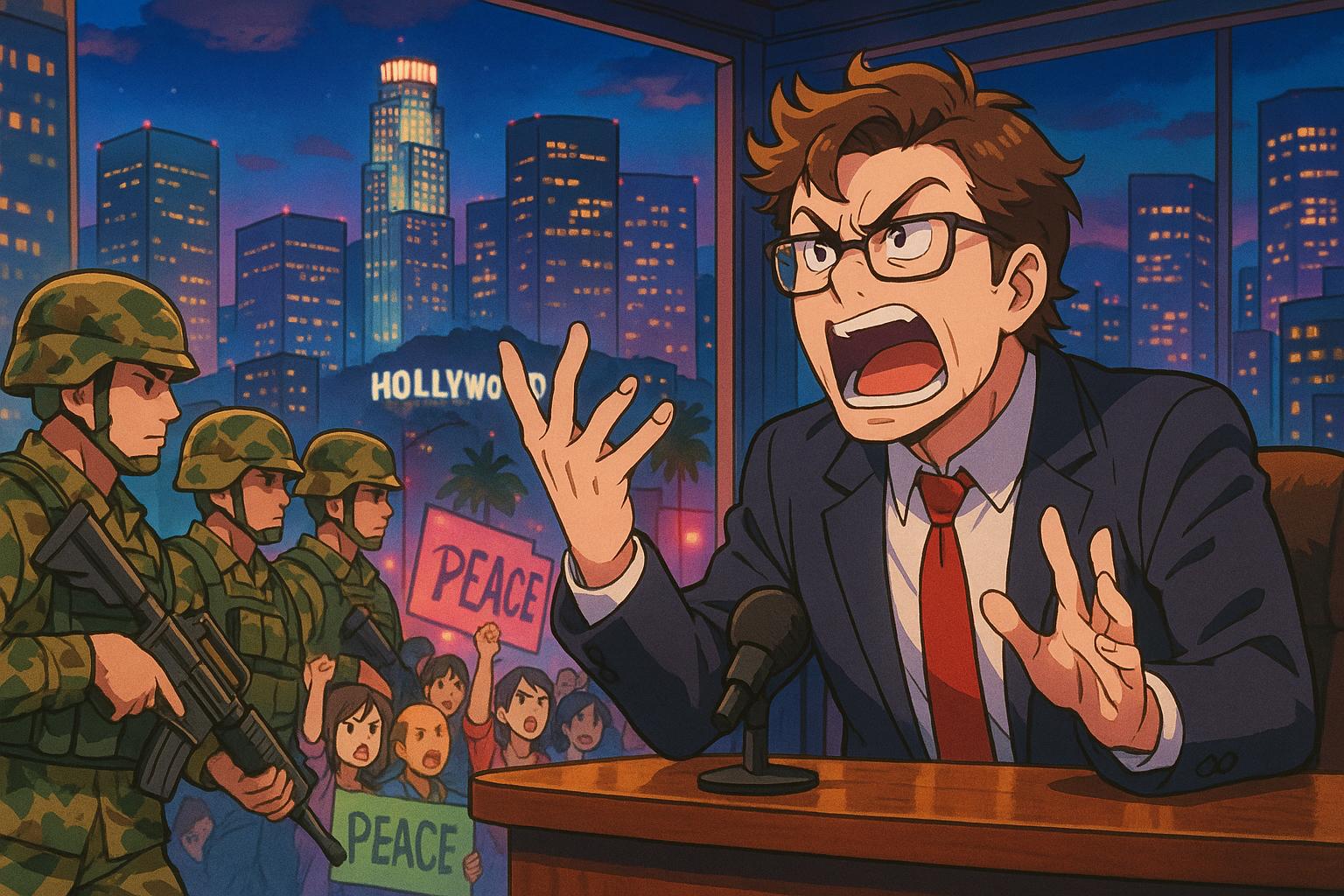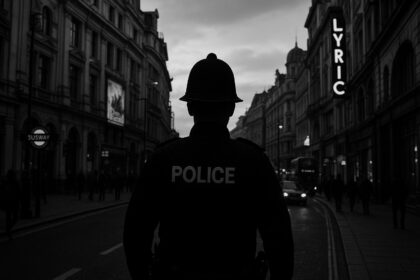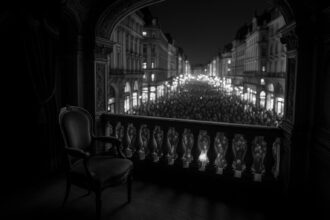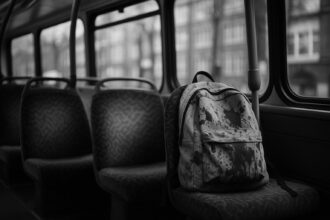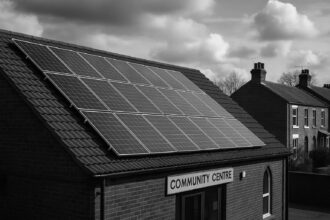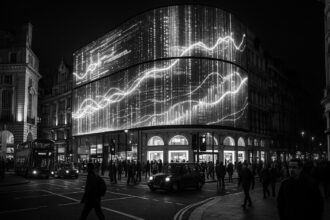Late-night comedians including Jimmy Kimmel and Stephen Colbert have sharply criticised President Donald Trump’s decision to send thousands of troops to Los Angeles in response to immigration protests, accusing the administration of manufacturing chaos and using militarisation as political theatre amidst calls from local officials condemning federal overreach.
In the ongoing tensions surrounding President Donald Trump’s recent deployment of military troops to Los Angeles, late-night television hosts have provided a platform for critique, starkly contrasting the narratives presented by some news outlets. During a recent broadcast, Jimmy Kimmel vehemently condemned Trump’s actions, labelling them as a calculated move to instigate chaos rather than a genuine response to a public safety crisis. Addressing a lively audience in Hollywood, Kimmel remarked on the disparity between the sensational portrayal of the situation by Fox News and the peaceful reality on the streets of Los Angeles, where life continued relatively normally amid ongoing protests against the president’s immigration policies.
Kimmel emphasised the absurdity of Trump’s approach, particularly his decision to send in 4,000 National Guard troops and 700 active-duty Marines. “When we had the wildfires that devastated big chunks of our city, he did absolutely nothing,” Kimmel noted, questioning the timing and justification for such military deployment. He expressed frustration over the administration’s tactics, asserting that the majority of residents involved in the protests had done nothing wrong, yet they were being treated like criminals in their own communities. Kimmel lamented that the president seemed more interested in creating an image of turmoil than addressing the underlying issues driving the protests, which were ignited by federal immigration raids that have led to mass detentions.
Similarly, Stephen Colbert weighed in on these militaristic developments during his show, drawing attention to Trump’s planned military parade in Washington, D.C., which coincidentally aligns with the president’s upcoming birthday. Colbert mocked what he described as “dictator stuff”, referring to the show of military force as a blatant attempt to bolster Trump’s image as a strongman. He articulated concerns that such displays, particularly in peacetime, could have profound implications for the public’s perception of military authority in domestic matters. This sentiment echoed a broader critique established by many commentators, who argue that Trump’s military posturing serves dual purposes: to rally his base and to portray liberal cities as chaotic.
On “The Daily Show,” Desi Lydic adopted a more sardonic tone, emphasising the contrast between the intended message of Trump’s troop deployment and the actual atmosphere at the demonstrations in Los Angeles. She highlighted how, despite the serious backdrop of political discontent, many protesters approached these events with a uniquely Californian spirit—bringing music and playful energy rather than escalating violence. Her commentary reflected a critical concern that escalating military presence risked further stigmatising peaceful activism while performing to the president’s narrative of conflict.
Seth Meyers also took the opportunity to comment on Trump’s escalating tensions, alluding to the president’s recent interviews reflecting a fixation on perceived disrespect from individuals like Elon Musk. Meyers juxtaposed this personal grievance with the very public consequences of Trump’s policies in Los Angeles and across the nation. Such commentary points to a larger narrative of distraction and misdirection that has characterised the Trump presidency, where focus on personal slights often overshadows substantive discussions about governance and civil rights.
As demonstrations against Trump’s immigration policies continue to draw attention, the remarks from late-night hosts reveal a collective unease regarding the militarisation of civil unrest and the political motivations behind it. Governor Gavin Newsom and Mayor Karen Bass have publicly denounced the federal intervention as an illegal overreach, arguing that it not only exacerbates tensions but poses risks to democratic principles. There is a palpable worry among local officials and activists that the deployment of troops could transform a civil rights issue into a spectacle of state power, further alienating communities and intensifying the cycle of conflict and unrest.
The interplay between these critical responses and the political realities on the ground forms a complex tapestry that reflects not only a nation divided on matters of immigration and law enforcement but also the significant role of media narratives in shaping public perception during turbulent times.
 Reference Map:
Reference Map:
- Paragraph 1 – [1], [2]
- Paragraph 2 – [1], [3], [4]
- Paragraph 3 – [5], [6]
- Paragraph 4 – [7]
- Paragraph 5 – [2], [4], [7]
Source: Noah Wire Services
- https://www.theguardian.com/culture/2025/jun/11/jimmy-kimmel-late-night-recap-la-trump – Please view link – unable to able to access data
- https://www.theguardian.com/culture/2025/jun/11/jimmy-kimmel-late-night-recap-la-trump – In this article, Jimmy Kimmel criticises President Donald Trump’s deployment of troops to Los Angeles in response to protests against immigration raids. Kimmel contrasts the Fox News portrayal of a violent insurrection with the peaceful demonstrations in the city, highlighting the contrast between media narratives and the reality on the ground. He condemns the administration’s actions as a ‘disgusting and unnecessary abuse of power’ and accuses Trump of intentionally inflaming tensions to create conflict for political gain.
- https://time.com/7293128/los-angeles-protests-curfew-mass-arrests-unrest-spreads-trump-newsom-feud/ – This article reports on the escalation of protests in Los Angeles following President Trump’s immigration enforcement policies and ICE raids. The protests have led to mass arrests by the LAPD after Mayor Karen Bass imposed a downtown curfew. The deployment of the National Guard and Marines without the consent of California Governor Gavin Newsom has sparked political backlash, with Newsom condemning the federal intervention as an illegal abuse of power aimed at creating chaos and control.
- https://www.reuters.com/world/us/trump-wants-liberate-los-angeles-residents-say-no-thanks-2025-06-11/ – This article discusses President Trump’s deployment of the National Guard and Marines to Los Angeles to ‘liberate’ the city from protest-related violence. Local residents, particularly in the Little Tokyo neighborhood, oppose the increased military presence, arguing that it has worsened the situation and intensified protests initially sparked by federal immigration raids. California Governor Gavin Newsom and Los Angeles Mayor Karen Bass have criticised the federal intervention, with Newsom warning of threats to democracy and Bass accusing Trump of deliberately inciting chaos.
- https://apnews.com/article/f39ba39287f628ce8c8be47c92ea6147 – This article covers the swift enforcement of a downtown curfew by Los Angeles police in response to ongoing protests against President Trump’s immigration crackdown. Officers used crowd-control measures and made arrests shortly after the curfew began. Despite opposition from local and state officials, over 4,000 National Guard members and 700 Marines were deployed across the city. The protests, largely centred in downtown Los Angeles, were sparked by immigration raids that resulted in dozens of arrests, leading to widespread demonstrations and clashes with law enforcement.
- https://www.ft.com/content/256c4e9b-eb35-48c5-8006-a3106c6cc7df – This article reports on Los Angeles Mayor Karen Bass declaring a local emergency and imposing a curfew in the city’s downtown area to curb violence and vandalism following five days of intense protests provoked by immigration raids ordered by President Trump’s administration. Governor Gavin Newsom criticised the federal response, denouncing Trump’s militarisation of the city as authoritarian. Trump defended his deployment of Marines and National Guard troops, claiming they were necessary to confront violent protesters, while national demonstrations against the immigration crackdown have erupted in other cities.
- https://time.com/7292875/trump-marines-la-immigration-protests/ – This article reports on President Trump’s deployment of approximately 700 U.S. Marines alongside 2,000 National Guard troops to Los Angeles in response to escalating protests over Immigration and Customs Enforcement (ICE) raids. This marks the first use of Marines in a domestic civil unrest situation in over 30 years. The deployment has ignited sharp criticism from California Governor Gavin Newsom and Los Angeles Mayor Karen Bass, who argue that the president is bypassing state authority and escalating tensions unnecessarily.


